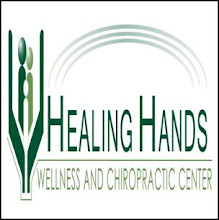Being a chiropractor, the most common complaint that I treat in my office is low back pain. Although we treat pretty much any and all musculoskeletal complaints from foot pain to headaches, low back pain is still the main reason most people see chiropractors. This is because low back pain is an epidemic in the United States. There are many factors that contribute to low back pain. Those may include obesity, lack of activity/exercise, sitting at work all day, injuries, bad genetics, etc. No matter the cause, our job is to find the right solution to reduce a patients' pain and work towards long-term relief solutions.
Over the past few decades, orthopedic surgeons have turned towards a very invasive surgery, spinal fusion, to deal with many cases of chronic low back pain. In fact, from 1998 to 2008, the number of fusion surgeries performed jumped from 174,223 annually to 413,171. This increase would indicate that outcomes for spinal fusions have been very good and therefore more have been performed. However, this isn't the case. While some fusions lead to much less pain and better function, way too many patients end up with the same level of pain if not more after the procedure.
Two very interesting studies were released earlier this year comparing outcomes of spinal fusion versus a much less drastic surgery called a laminectomy for spinal stenosis (one of the most common conditions for which fusions are performed). In the end, researchers determined that for the studied conditions, a spinal fusion did not give significant enough benefits over a laminectomy to justify the procedure. Basically, those patients who received a laminectomy suffered less blood loss during/after surgery, spent less time in the hospital, accrued less medical expenses and had nearly as good of 2 and 5 year outcomes in regards to pain and function as their fusion counterparts.
Undoubtedly, spinal fusions are at times necessary procedures. However, they need to be performed on the right candidates and should not be the quick go-to procedure for back pain. Most back pain can be remedied with conservative treatment and/or much less invasive procedures. You can read more about the studies mentioned by following this
link.
If you have any questions regarding this topic, feel free to call our office at (847) 673-6600 or visit us on our
website.

